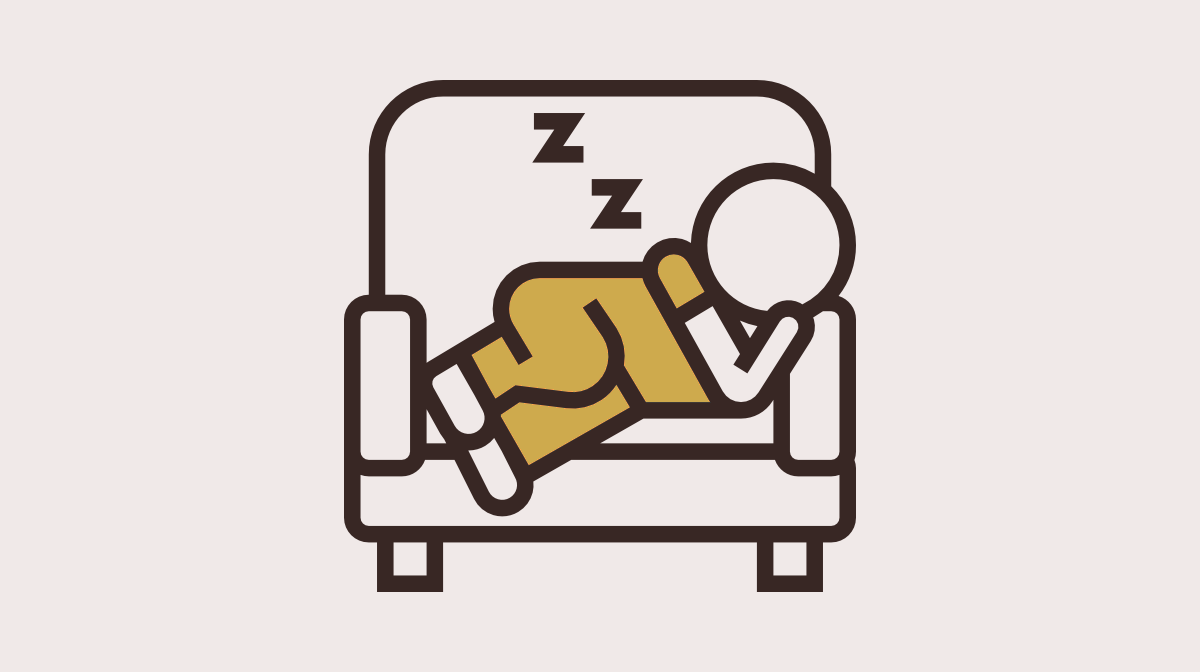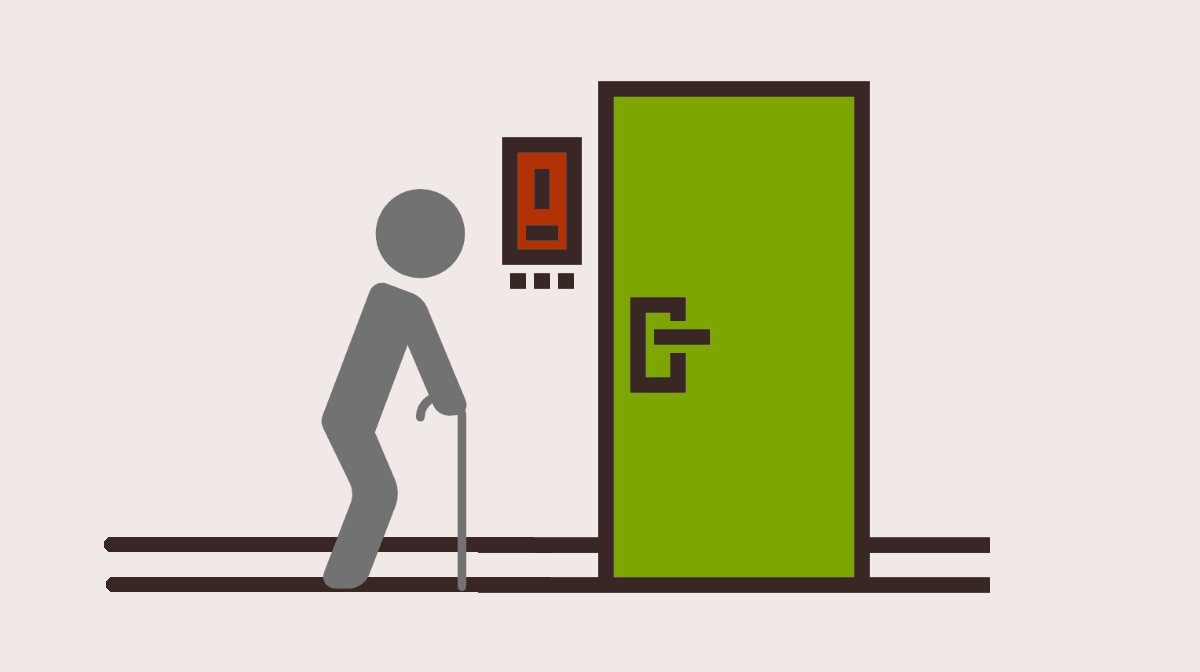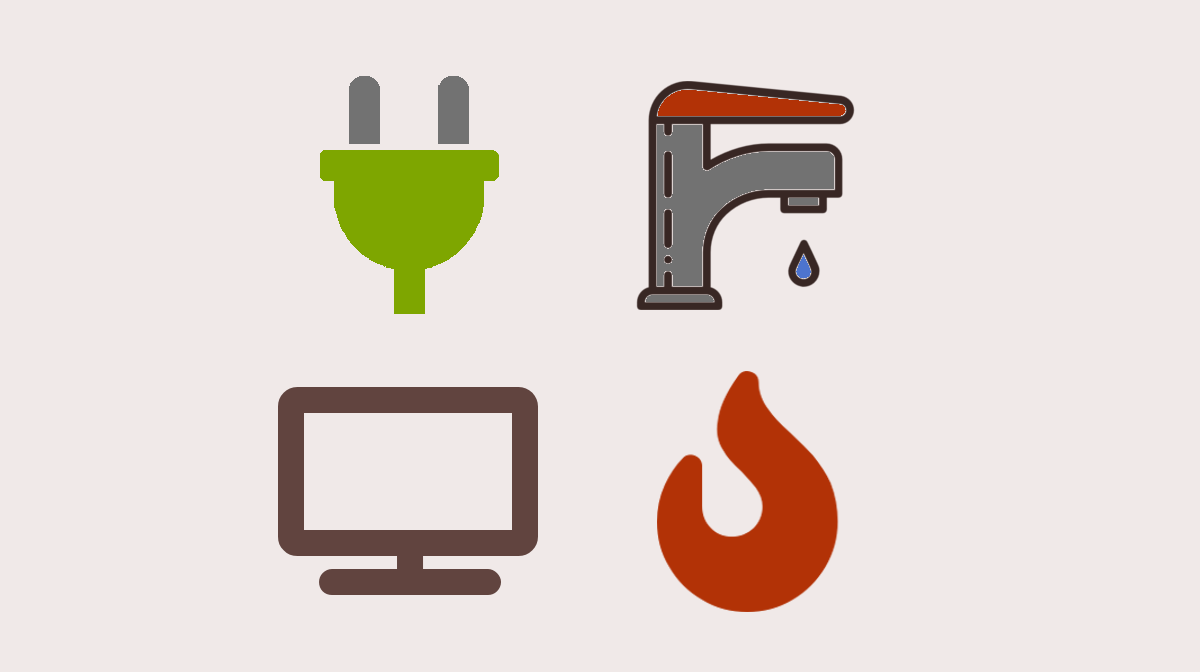The original topic for this article was going to be "apartment hunting for seniors." As I reviewed the points I wanted to cover, it became clear that the concerns we'll discuss today don't address the needs of every older renter, nor should they necessarily be restricted to older renters. Rather, they address the needs of individuals who, for lack of a better term, can be described as frail.
"Frailty" in prior decades was simply a term used to describe fragile individuals, but in recent years it's also become an actual medical diagnosis. Those suffering from frailty syndrome experience unintentional drastic weight loss, muscle loss, weakness, fatigue, slow walking, and usually have low levels of physical activity. It is most common in the elderly, but not all seniors are frail and not all frail people are seniors. It isn't explicitly a disability, although it may lead to or result from disabilities.
There are fair housing laws protecting the elderly and disabled, but not all frail renters are covered by either of those to protections. Therefore, this is, after many months, the return of the unprotected minorities series.
I have no illusions about this article. Most of the readers will be family members and friends of seniors. But while I know you're out there and I'm glad that you're concerned about your loved ones' well-being, this article is for the frail. Directly. If you have trouble reading the text you can press CTRL and the "+" sign together to make it bigger.
A Word About the ADA
Some frail renters will require the use of appliances such as walkers or wheelchairs to get around. These renters do clearly fall within the protections of the Americans with Disabilities Act. They are permitted to make reasonable adjustments to their apartments in order to improve accessibility. However, while landlords may permit modest changes such as the installation of grab bars or lowering light switches, they usually do not permit more drastic changes such as widening hallways.
But we're not talking about making big ADA changes here. We're giving you pointers to find a place that doesn't need them. The cost of ADA changes are always borne by the renter. You may not see any need for such support devices in your home. It is always less expensive and labor intensive to find a place that is ready for you from the get-go. Besides, if family members are doubtful that you can still live independently, it may be easier to convince them should you demonstrate that you're making an effort to find a place that assuages their concerns.
The Building
High Traffic Common Areas. Frail individuals are much more susceptible to falls and sudden incapacitating injuries. Everyone has heard horror stories of people who fell down in their homes and weren't discovered for quite a while. You want to ensure that if a you don't leave the house for a few days that there is a high chances that someone will notice. Look for indoor mail rooms with lots of mailboxes that would allow neighbors to notice uncollected mail. Look for buildings with hallways that share many apartment doors to maximize the chances of someone noticing your absence. Corridor style buildings are far preferable to vintage buildings with many smaller entrances.
Snow Must be Cleared. It snows in Chicago. Not every landlord is good about cleaning up afterwards. But winter is not a good time to go looking for apartments so there's often no way to get first hand proof of a landlord's snow shoveling thoroughness before signing a lease. You can always ask the landlord about their shoveling policies, but landlords often fib or exaggerate. The best way to find out the truth is to hang out in the area until you spot either a mail carrier or someone walking their dog past the building. Either one should be able to fill you in on the reality of the situation provided they've been in the area long enough to remember last winter.
Indoor Route to Laundry. Landlords who are great about shoveling their walks may still not shovel back decks or parking lots. If the only path to a shared laundry room is down an icy flight of wooden stairs, you're going to have a problem. Make sure there is a way that you can clean your clothes on snowy days without leaving the building.
Non-skid Carpets. In wet weather the tiled foyers of apartment buildings turn into skating rinks as pair after pair of soggy shoes walk across them. It's very important that high traffic areas have ample non-skid rugs for use during inclement weather.
Easy Access to Trash Cans. The same concerns with laundry apply to trash containers. Unless a building has a trash chute, every renter will probably have to go outside to drop off the trash at least once a week. For frail renters living alone this may be one of the most demanding things you do. You want to be sure that this route is not to long, and that it is as clear as possible regardless of the weather.
The Apartment
High First Floor is Best. When you have trouble getting around or low energy, stairs are a big, big challenge. Some renters with mobility challenges will decide that ground floor apartments are fine, especially given the high cost of living in a Chicago high rise. But ground floor apartments are also easy targets for thieves, especially if they notice that the occupants aren't all that light on their feet. High rises with elevators are also an option, but you want to be sure that you can still get out in the case of fire. Chicago has an abundant number of apartments with windows that are about eight feet from the sidewalk. Those make an ideal happy medium between accessibility and safety.
Carpeted Floors. Falls are the most common cause of injury among frail individuals. Even if you minimize obstacles, you still should do what you can to mitigate damages from hitting your head on the floor. Apartment carpets may be thin and flimsy but they're a whole lot softer than hardwood against the skull. Plus, if your place is carpeted, your upstairs neighbor's place probably is too, which means less noise from above.
Wide Hallways. You may want to hang on to a wall as you walk along, but you don't want to hit your head on the opposite wall as you go down. Plus, in the event that you do need equipment to help you walk, you will already have the space for it.
Minimal Trim. Again, you want to minimize things that your head could hit on the way down in the case of a fall. Look for low-profile door frames and window sills. Avoid hallways with chair rails - they're designed for trim and frequently not able to take the full weight of someone who might try to use them as a handrail. If you find you must steady yourself against the walls regularly, it's better to use the flat surface or install stud-mounted rails designed for such a purpose.
Many Outlets. Renters in apartments with older wiring have been known to string extension cords all over the place. For frail renters this is absolutely not an option. You want to minimize the number of trip hazards in areas that may not have any walls to support you.
Divided Layouts. Recent trends in apartment design have brought about a lot of open floor plans as developers try to capture the popular loft ambience. For folks with trouble getting around this is a very bad trend, as it means a lot more time in areas with nothing to hang onto should you have an unsteady moment. You want smooth walls you can reach, not wide open spaces and rough brick walls.
Low bathtubs. Stepping over the lip of a high claw-foot tub is not something you want to do if you have trouble moving, but not many apartments have separate walk-in shower stalls. Look for bathtubs that are deep enough to actually take a bath, but not so high that you have to actually kick up to get in them.
Long Over Square. Frail renters often spend a lot of time at home. Walking around inside the apartment may be the only exercise you get. If you have the choice between a long, hallway-based layout over a grid-based square layout, go for the hallway.
Newer Windows. When you've got issues with intermittent or chronic weakness you may have trouble opening heavy vintage windows that may be caked over with decades of paint. You'll want to be able to open them, and not only for fresh air. In many apartments you're supposed to open the bathroom windows after bathing in order to allow the water vapor to vent out. Newer windows tend to be lighter and easier to move within their tracks.
Kitchen Concerns. Drastic weight loss is a primary symptom of frailty. You want to make sure your kitchen is inviting to you and easy to get around. Look for bright lights, countertops that are a different color from the cabinets, wall-mounted appliances and muted color schemes. Make sure there is space on the floor for non-skid mats, especially in front of the sink.
Separate Water Heater. Frail renters are much more susceptible to burns from very hot water. Shared building water heaters are often set very, very high - high enough to scald. If you can find an apartment with its own water heater so you can set the temperature a bit lower than usual, you'll be a little safer in the long run. It may take you a couple more minutes to boil water but if it saves you a nasty burn, so be it.
The Lease
Month-to-Month. It can be very tough to get a month-to-month lease in Chicago given its long off season. But if you're a renter whose health is already below average, the chances of you needing to terminate the lease early are much higher. The best option is to sign for a year up front so you get the written lease, and then just let the lease expire without renewing. That way you get the benefits of the written lease in perpetuity, but after it expires you can leave at any point with 30 days notice. However, most property managers will not allow this sort of situation to occur. If you cannot find a month-to-month lease or a hybrid, make sure you read the lease break policies very, very closely and discuss up front what would occur should you be hospitalized for a long time.
Caretaker Access. Even if you are living independently now, you should give some consideration to how a caretaker will access the apartment if you need them. Many senior renters have someone with power of attorney for them, but your landlord may or may not honor this arrangement. You can, of course, just give them a key. But if you choose to live in a doorman building they may still have a hard time getting in. When you sign the lease it may be worthwhile to note in writing that your caretaker of choice has the right to enter your apartment without advance notice from you, and to provide any door staff with a copy. Otherwise they may have to wait for the landlord to come and unlock the door should they need to visit you in an emergency situation.
Pet Policy. You may not have a pet now. You may never plan on getting a pet. But therapy animals are becoming more common and there may come a time when you want some four-footed assistance around the house. Pet friendly apartments tend to be more expensive, but if you're able to, leave yourself the option of pairing up with a fuzzy friend should the need arise.
Renters with mobility challenges are often more stymied by their treatment by other people than they are by their own physical limitations. The needs and preferences of frail renters should not be seen to have greater or lesser importance than those we've highlighted in other installments of this particular series.
No apartment or building is exactly the same. As long as someone is willing and able to live independently, there's a home for them somewhere out there. But just like obese renters, pet owners and smokers, frail renters looking for housing in multifamily buildings must all acknowledge limitations and find a place that will neither harm to them through injury, nor harm those around them through worry and stress.
RentConfident is a Chicago startup that provides renters with the in-depth information they need to choose safe apartments. Help us reach more renters! Like, Share and Retweet us!






